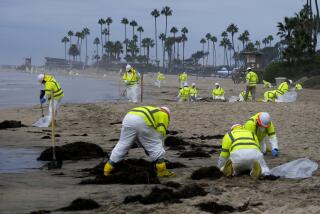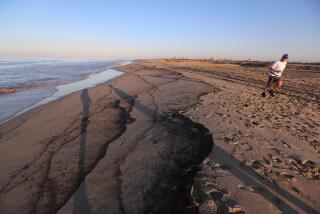EPA Proposes Fines Against 2 Cruise Lines
- Share via
Is your cruise ship polluting the pristine environment you came to see? In some cases, yes, says the government, which is taking a closer look at the industry’s environmental record.
This month the U.S. Environmental Protection Agency recommended fines of $110,000 against Princess Cruises and $55,000 against Norwegian Cruise Line for allegedly exceeding Alaska’s smokestack emission limits last summer. And the agency “anticipates taking similar action” against several other lines, said Steve Torok, the EPA’s senior representative in Juneau, Alaska.
Princess and Norwegian were given 30 days to respond to the EPA by paying the fines, taking legal action to contest them or requesting negotiations, Torok said. In a statement, Princess’ President Peter Ratcliffe described the alleged violations aboard its Sun Princess and Dawn Princess as “two regrettable, isolated incidents which were due to short-term technical and operations issues” that were “resolved immediately.” Norwegian declined to comment.
Torok added that inspections this summer have turned up new violations by cruise ships in Alaska. But not all violations will result in charges, he explained, because the pollution law allows for extenuating circumstances, such as strong currents that require running engines at higher power. The review process takes months.
Meanwhile, the federal agency has scheduled hearings next month in Los Angeles, Juneau and Miami on another ship pollution issue: alleged discharges of waste water, solid waste and hazardous waste into the sea. The review was requested by 53 environmental groups.
The Los Angeles hearing is Sept. 6. For more information, visit the Internet site https://www.epa.gov/owow/oceans/cruise_ships. Last year, Royal Caribbean Cruises agreed to pay $18 million in fines for polluting waters in several locations, including Los Angeles and Alaska.
Since December 1999, cruise lines have been working with Alaskan state officials on a voluntary program to test water discharged from ships and to bar discharges near ports.
More to Read
Sign up for Essential California
The most important California stories and recommendations in your inbox every morning.
You may occasionally receive promotional content from the Los Angeles Times.













